- News
- Reviews
- Bikes
- Accessories
- Accessories - misc
- Computer mounts
- Bags
- Bar ends
- Bike bags & cases
- Bottle cages
- Bottles
- Cameras
- Car racks
- Child seats
- Computers
- Glasses
- GPS units
- Helmets
- Lights - front
- Lights - rear
- Lights - sets
- Locks
- Mirrors
- Mudguards
- Racks
- Pumps & CO2 inflators
- Puncture kits
- Reflectives
- Smart watches
- Stands and racks
- Trailers
- Clothing
- Components
- Bar tape & grips
- Bottom brackets
- Brake & gear cables
- Brake & STI levers
- Brake pads & spares
- Brakes
- Cassettes & freewheels
- Chains
- Chainsets & chainrings
- Derailleurs - front
- Derailleurs - rear
- Forks
- Gear levers & shifters
- Groupsets
- Handlebars & extensions
- Headsets
- Hubs
- Inner tubes
- Pedals
- Quick releases & skewers
- Saddles
- Seatposts
- Stems
- Wheels
- Tyres
- Health, fitness and nutrition
- Tools and workshop
- Miscellaneous
- Cross country mountain bikes
- Tubeless valves
- Buyers Guides
- Features
- Forum
- Recommends
- Podcast
review
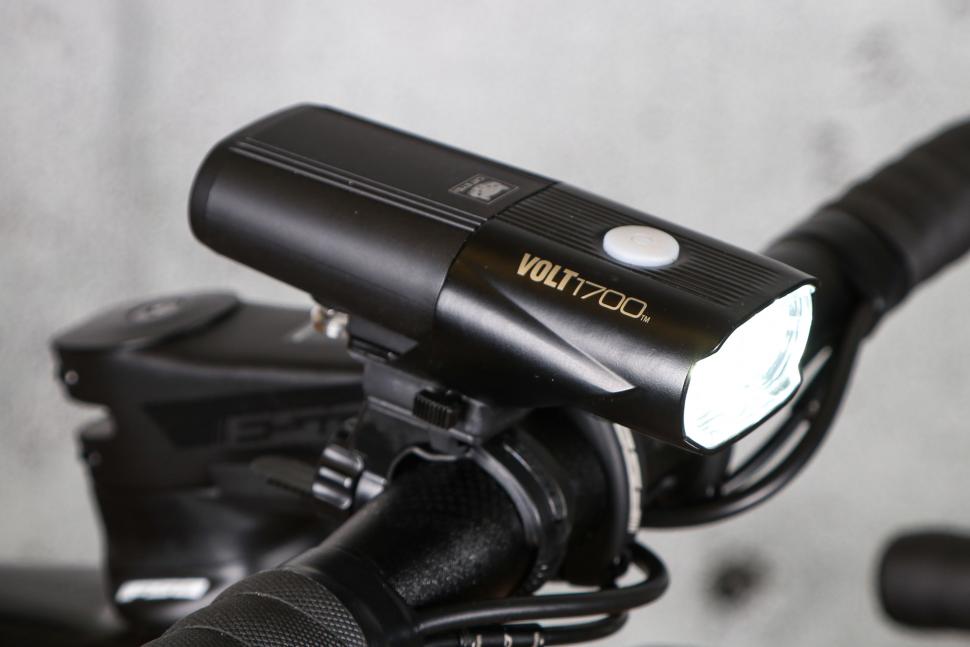 2022 Cateye VOLT 1700.jpg
2022 Cateye VOLT 1700.jpg£179.99
VERDICT:
Still a great light, but doesn't charge on the go and could do with a better bracket
Decent amount of light
Great beam shape
Good modes and run-times
Heavy for the bracket – bouncy off-road
Can't charge on the go
Micro-USB, not USB-C charging
Weight:
270g
Contact:
At road.cc every product is thoroughly tested for as long as it takes to get a proper insight into how well it works. Our reviewers are experienced cyclists that we trust to be objective. While we strive to ensure that opinions expressed are backed up by facts, reviews are by their nature an informed opinion, not a definitive verdict. We don't intentionally try to break anything (except locks) but we do try to look for weak points in any design. The overall score is not just an average of the other scores: it reflects both a product's function and value – with value determined by how a product compares with items of similar spec, quality, and price.
What the road.cc scores meanGood scores are more common than bad, because fortunately good products are more common than bad.
- Exceptional
- Excellent
- Very Good
- Good
- Quite good
- Average
- Not so good
- Poor
- Bad
- Appalling
Cateye's Volt 1700 has been around for a while – long enough for it to be reviewed a second time here on road.cc. While the light output and beam pattern are still as good as they ever were, the standard bracket doesn't really work for me that well, and I'd like to be able to charge the light while using it. For my set of requirements for this kind of light, although the Volt 1700 is great, other lights fit the bill better, for less money.
Check out our guide to the best front bike lights for more options, or if you're in the market for illumination at both ends, our best bike lights guide reveals our favourite front and rear units.
The Volt 1700 offers five modes: High is 1,700 lumens (run-time around 2 hours), medium is 500 lumens (5 hours) and low is 200 lumens (15 hours). The Hyper constant flashing mode is 200 lumens with 1,700-lumen flashes (12 hours), and flashing mode is 200 lumens (150 hours).
The light has a memory function, which remembers your last mode when you switch it on again. A double-click will chuck it straight into 1,700 lumens – useful just before a descent.
The big button on top works well, even in winter-gloved hands in the dark. It changes colour to amber when the battery is below 50% capacity, and red below 25%.
Charging
The charging port sits just in front of the mounting point and has a decent bung – easy to open, yet substantial enough to keep weather out. It's a micro-USB, so you're likely to have 27 spare cables already, but the downside is that it takes a while to charge – around 5 hours from empty. It would be nice to see USB-C here.
Unlike some other lights (like the Ravemen LR1600), the Volt cannot be charged in use – as soon as you plug a cable in, the light switches off.
The battery is removable by way of a quick release, which means you can replace it easily when it no longer does its job. It also means you could carry a spare if you needed longer run-times. A spare costs £99. Not exactly cheap, especially not compared with a bog-standard battery bank (if you were able to charge on the go), which is more versatile anyway as you can also use it to charge your phone and head unit if you're on that sort of ride. As the spare battery comes with a proprietary connection, you can only charge it when connected to the light.
In my opinion, the charge-while-riding option is much preferable to eke out run-times.
Bracket
The light comes with Cateye's FlexTight bracket, which is shared across its ranges of front lights. The bracket itself is well designed, and gives a secure, tool-free attachment. However, the Volt 1700 is the biggest in the Cateye front light range, and in my experience is just a bit too heavy for the bracket. On uneven road surfaces, there is a bit of bounce. Not much of an issue on the road, but for riding gravel in the dark it's a bit annoying.
The bracket positions the light's fore-aft midpoint behind the centre of the handlebar, meaning it sits quite far back. This can cause knee interference when you're out-of-the-saddle climbing, especially if you mount the light underneath the handlebar, which is my preference.
A GoPro adapter is available to mount the light under your favourite out-front head unit mount, but costs an extra £6.99; for £179.99 I would have expected this to have been included.
In use
Our Shaun tested the Volt 1700 in 2018, his review being based on his experience of riding mostly on lanes and commuting in urban traffic. He liked the light and, if anything, thought 1,700 lumens was a bit too good.
I agree with his findings so won't go into much detail here. I found the modes to be well judged; the medium mode is plenty for riding on dark lanes, chucking it up to the high mode only for steep, sketchy descents. The hyper constant flashing mode certainly gets you noticed in foul day-time conditions where you don't necessarily need it to see, but you definitely want to be seen.
For gravel riding in the dark, the medium mode is just right, picking up plenty of detail to find the right line. A quick double-click gets you into full blast 1,700 lumens mode (akin to Lezyne's Race mode where you switch between high and low mode only, like you find on the Mega Drive 1800i, for example), which is very useful, as without it you'd have to cycle through all the lower modes to get to high mode again.
> 6 tips for cycling at night – don’t let the dark stop you riding
For my ability on a gravel bike, high was plenty to find the right lines on even the steepest and most technical descents, though if I was on a bike where you need fewer skills for more speed, like a full suspension downhill mountain bike, more illumination would be required to let the bike run.
Value
At £180, the Volt 1700 is not cheap. There are other lights that have scored well in our reviews that offer similar performance for less of your pounds.
Lezyne's Mega Drive 1800i front light, mentioned above, costs £160 and lets you set up your preferred modes in your preferred order via Bluetooth and an app on your phone.
Ravemen's LR1600 USB Rechargeable Curved Lens Front Light costs even less at £114.99, and is rechargeable while riding.
As ever, you can spend more: Light & Motion's Seca Comp 2000 front light, tested by Mike last winter, costs £254.99, but does offer more lumens.
It is worth saying here that the Volt's run-times on high are longer than all the lights mentioned above. If that's what's important to you then the Volt is a great option. For me, charging on the go trumps a longer run-time; when I need long run-times, I'm carrying battery bank anyway.
Conclusion
The Volt 1700 is still a great way to see where you are going, both on the road and off. The included handlebar mount doesn't allow for my preferred way of mounting this kind of light, which I appreciate is a preference, and is easily sorted with a couple of extra bits, but it would have been nice to see those included in the £180 this light costs.
Although the run-times on high are longer than the cheaper Ravemen light mentioned above, the Volt can't be charged while using it, which for the way I use this kind of light wouldn't justify the extra cost of the Volt.
Verdict
Still a great light, but doesn't charge on the go and could do with a better bracket
road.cc test report
Make and model: Cateye Volt 1700 USB Rechargeable Front Light
Size tested: 1700 lumens max
Tell us what the light is for, and who it's aimed at. What do the manufacturers say about it? How does that compare to your own feelings about it?
Cateye says: "The CatEye Volt 1700 is a user-friendly, high powered rechargeable light, offering enhanced light distribution on or off the beaten track.
"Not only does it pump out an extra 100 Lm over the Volt 1600, it also benefits from side visibility, a tool-free replaceable cartridge battery, a 3 level battery indicator and a significantly shorter recharging time."
Tell us some more about the technical aspects of the light?
Cateye lists these details:
3 level battery indicator:
When charging: Red = less than 50% charged / Orange = more than 50% charged / Green = charging completed
When illuminated: Orange = battery capacity 50-31% / Red = 30-16% / Red flash = less than 15% remaining
With 5 modes giving run times from 2 – 150 hrs, the Volt 1700 does it all.
High: 1700 Lm, 2 hrs
Medium: 500 Lm, 5 hrs
Low: 200 Lm, 15 hrs
Hyper Constant: 200 to 1700 Lm, 12 hrs
Flashing: 200 Lm, 150 hrs
1700 Lumen maximum
Chip LED x 2 output
Super powerful wide beam with Opticube technology & sideways visibility
USB Li-ion rechargeable, tool-free, replaceable cartridge battery
Large mode button for ease of use when wearing gloves Double click to High Mode. Single click returns to the previous mode
Recharge time: 5.5 – 15 hrs
Includes Flextight bracket 22-32mm
Weight: 270g
Run time:High mode - 1700 lumens: 2hrs; Middle mode - 500 lumens:5hrs; Low mode - 200 lumens:15hrs; Daytime HyperConstant mode - 1700/200 lumens:12hrs; Flashing mode - 200 lumens:150hrs
Rate the light for quality of construction:
8/10
Rate the light for design and ease of use. How simple was the light to use?
8/10
Rate the light for the design and usability of the clamping system/s
5/10
The bracket holds the light just about adequately for road use, but for me the light sits too far back on the handlebar, interfering with my knees when out of the saddle, particularly when mounted upside down – which is my preference.
Rate the light for waterproofing. How did it stand up to the elements?
8/10
Rate the light for battery life. How long did it last? How long did it take to recharge?
7/10
The micro-USB charging port means it takes longer to charge than if it had a USB-C port.
Rate the light for performance:
9/10
Rate the light for durability:
8/10
Rate the light for weight:
7/10
At 275 grams, it's quite a lump. This is, of course, a consequence of the battery size and the longish run-times that result – which are a plus.
Rate the light for value:
4/10
There are other lights that do more or less the same thing at a significantly lower cost.
Tell us how the light performed overall when used for its designed purpose
The light works really well for seeing and being seen, on and off road. While the bracket works really well for the lighter front lights in Cateye's range, I feel that it's not quite up to the job of keeping the Volt 1700 – the biggest one in the range – stable, particularly on gravel descents.
Tell us what you particularly liked about the light
The beam pattern and light output, and the modes are spot on too. The run-times are just right for the sort of off-road local loop I typically do in the dark.
Tell us what you particularly disliked about the light
The bracket is suboptimal for my preferred use, and I'd have liked to be able to charge the light while running it.
How does the price compare to that of similar products in the market, including ones recently tested on road.cc?
The main review has more details, but Ravemen's LR1600 retails at £114.99 and Lezyne's Mega Drive 1800i for £160. Both have slightly shorter run-times on high, but do the same job. You can spend more: Light & Motion's Seca Comp 2000 costs £254.99.
Did you enjoy using the light? Yes
Would you consider buying the light? Probably not.
Would you recommend the light to a friend? I'd probably recommend one of the cheaper options, unless the longer run-time was high on the priority list.
Use this box to explain your overall score
Cateye's Volt 1700 is a great light for on and off-road use. The beam pattern works well, the modes are well judged, the double-click to high mode functionality is a nice touch. However, for me, the bracket doesn't really work. At the very least, I'd have expected the GoPro mount adapter to be included for £180. Being able to charge on the go would have made the light better too, given that it is otherwise easily good enough to light the way on an all-nighter.
About the tester
Age: 44
I usually ride: All of them! My best bike is: Ribble Endurance SL disc
I've been riding for: Over 20 years I ride: Most days I would class myself as: Expert
I regularly do the following types of riding: cyclo cross, commuting, touring, club rides, mtb, Zwift
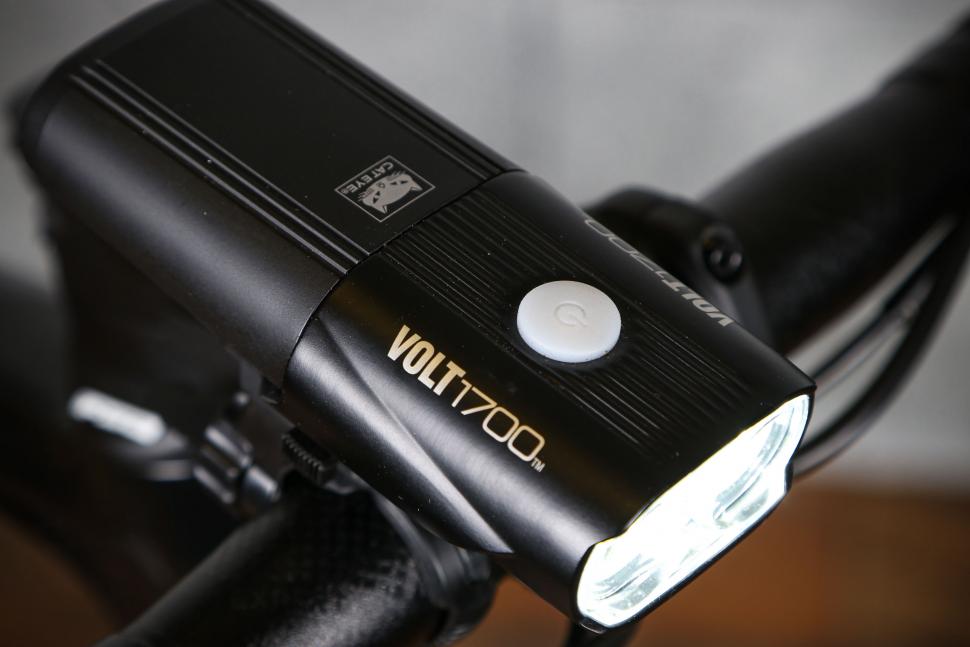
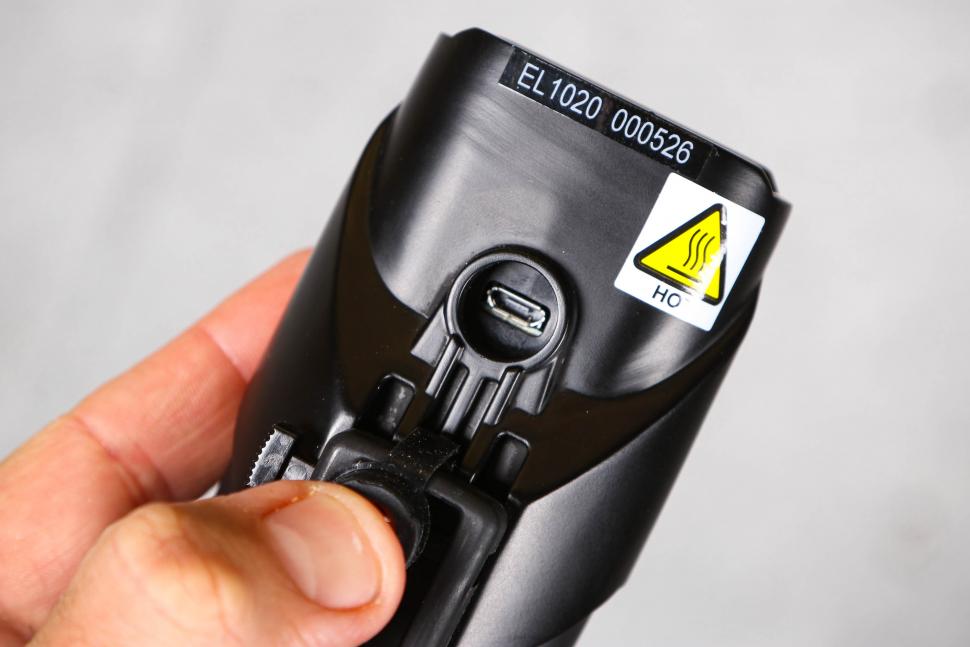






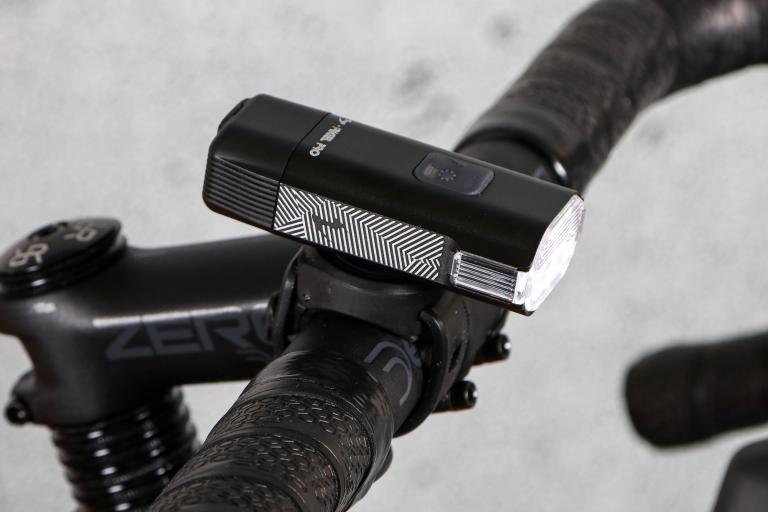
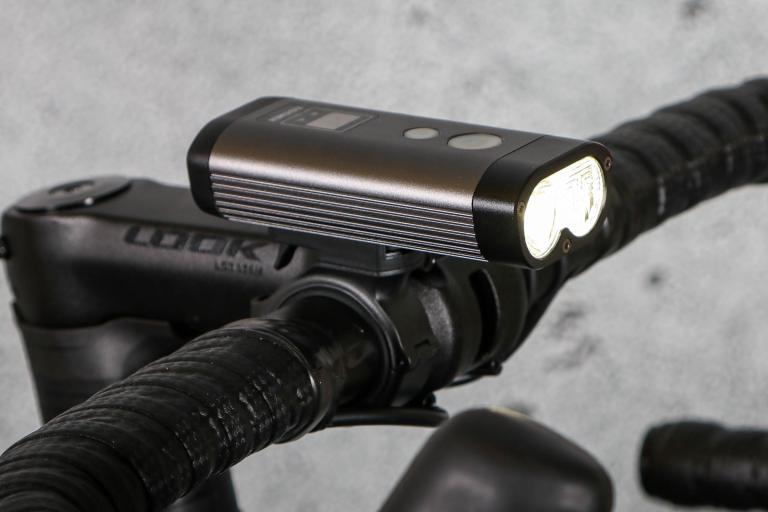
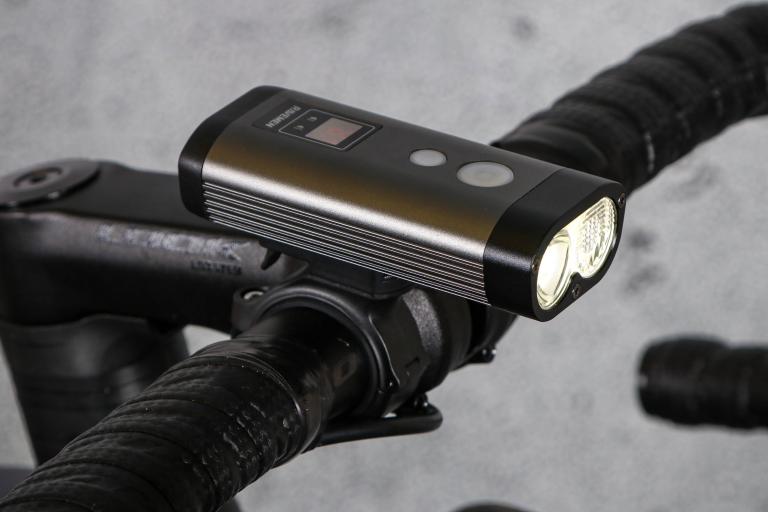
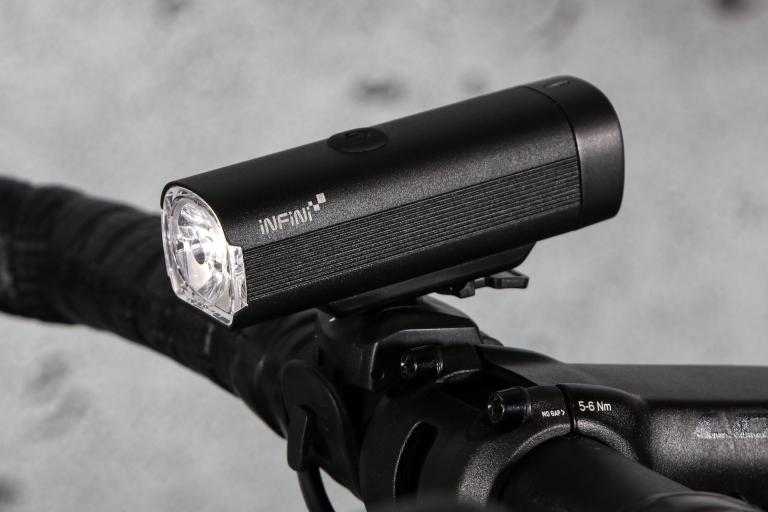
I trust that you also encourage motorists to buy white or yellow cars and to shun vehicles the colour of a wet road?
nah they just read the question as do you always not leave the recommended 1.5m when overtaking cyclists. I know people overestimate their...
Worcester hospital parking 'horrific' as petition handed in...
Ive never seen the figures broken down by who reports them, you can kind of infer things from stats, like Ive seen them break it down as careless...
Are you going to answer?
No more of this! HP will turn to stone!!
I'm using 700c, 9-speed 46/30 with a ?-34 cassette for all my cycling including the Bob trailer. It's about right - I can't get up everything on my...
"A brutalist interpretation of a road" So true. Grey markings on grey paving slabs surrounded by other grey paving slabs...
Driver in a Citroen travelling at 70mph crashes into the front of a house in Canterbury Road, Faversham at 5.30am on Sunday....
Somewhat confusingly, Velocio includes both a fit and a size chart, and says to use the fit chart (which uses height and weight) as the guide for...